
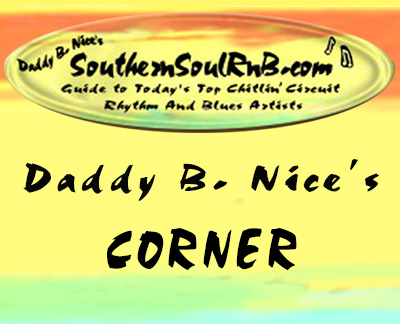
Daddy B. Nice’s Corner 2020 – news and opinion on Southern Soul RnB music and artists
Daddy B. Nice Reviews DENISE LASALLE: ALWAYS THE QUEEN (The New Posthumous Autobiography)….TOP TEN “SPILLOVER”: Top 40 Southern Soul Singles…. Scroll down.
April 18, 2020
So long! CD Baby Closes Its CD Store!
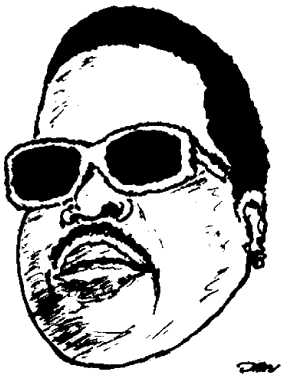 <
<
In these strange days dominated by the Covid 19 virus, yet another–can-this-really-be-happening?–event has shaken the southern soul world. CD Baby, the low-cost, easy-entry, longstanding, online bazaar for recording artists to market their compact discs, has closed its doors.
Hundreds if not thousands of southern soul artists have been affected, from aspiring newcomers to grizzled stars like Bigg Robb, who posted every collection he ever produced on the independent, artist-friendly website.
Thousands of CD-buying links at SouthernSoulRnB have been rendered obsolete and invalid, from the hyperlinks contained in hundreds of artist guides to vast swathes of artist albums listed in Daddy B. Nice’s CD Store. All CD-purchasing links now dead-end at a page which proclaims:
Where’s the CD Baby Store? CD Baby retired our music store in March of 2020 in order to place our focus entirely on the tools and services that are most meaningful to musicians today and tomorrow.
One would think that paramount among the “tools and services most meaningful” to independent recording artists would be the sale of CD’s, but CD Baby’s closure makes obvious one of the dirty little secrets of the southern soul recording industry and popular music as a whole. Namely, CD/album sales have been declining for years, so much so that even the CD “charts” published online are pallid indicators of the true data on newly-arrived albums, with numbers that would prove more embarrassing than enticing if actually listed. According to entertainment industry chronicler Variety, CD Baby reported that:
By 2009, sales through our store accounted for only 27% of the total revenue we paid to artists every week. By 2019, sales on our store comprised less than 3% of our clients’ total earnings. With a few exceptions, the store is no longer a money-maker for most of our artists.
For recording artists striving to find outlets to market their collections, options to CD Baby still exist, of course: the goliaths Amazon and Apple, not to mention Barnes & Noble, CD Universe and other lesser entities. Among indie labels, Dallas-based, southern soul label Music Access is rumored to be taking “any artist who breathes,” and googling CD Baby on the search engines turns up a new competitor called Tune Corps.
Nevertheless, the demise of CD Baby’s retail music store is a hard loss for southern soul artists, who by definition are independents (without major labels). One of southern soul’s fundamental edifices has crumbled.
–Daddy B. Nice
April 11, 2020
TOP TEN “SPILLOVER”: Top 40 Southern Soul Singles
An expanded list of the songs vying for “Top Ten Singles” in April 2020
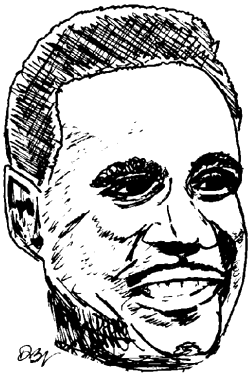
1. “Nukie Pie”—Carolyn Staten feat. Jennifer Watts & Unkle Phunk
2. “Stroking”—Arthur Young 3. “Tasty Girl”—Ju Evans
4. “Just Hang Tonight”—Sir Charles Jones feat. Wilson Meadows
5. “I Want To Love You”—West Dawn
6. “While You Was With Your Sidepiece”—Certified Slim
7. “Southern Soul Train”—Luster Baker feat. Unkle Phunk
8. “Take It Off”—Bigg Robb feat. Wendell B.
9. “Private Party”—Highway Heavy feat. Dave Mack & Tyree Neal
10. “Come To Daddy”—Stevie J. Blues
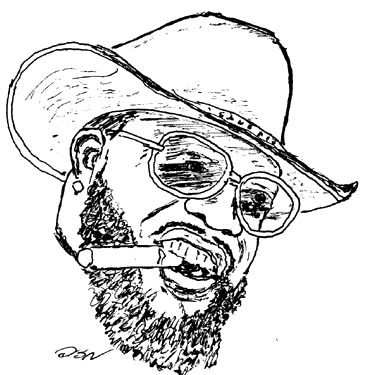
11. “Southern Soul Paaarrrteee”—Mr. J
12. “Booty Shakin'”—Big Ro Williams
13. “Act Right”—Car’letta
14. “Southern Soul Groove”—Princess Towanna Murphy feat. Jeter Jones
15. “Doing The Right Thing With The Wrong Man”—Towanna Murphy
16. “There’s A Party Up In Here”—Frank McKinney
17. “Stay In Your Lane”—Banky
18. “Move Around”—B. Streezy feat. Roi Chip Anthony
19. “A Woman’s Worth”—Ju Evans
20. “Just My Imagination”—Big Mike
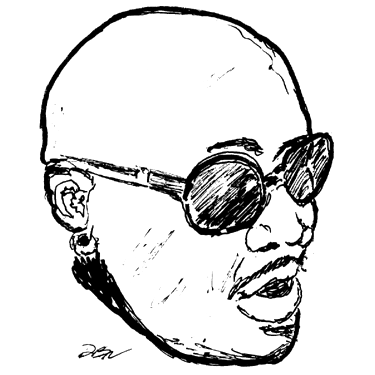
21. “Why You Mad At Me (Remix)”—Terrence Davis
22. “Ain’t No Fun (When The Rabbit Got The Gun)”—Mr. Fredlo
23. “Holiday”—Highway Heavy feat. Dave Mack
24. “Yard Man”—Chrissy Luvz
25. “Party”—Magic One 26. “Ripping And Running”—Narvel Echols
27. “Sugar Daddy”—Blind Ricky McCants feat. Joe Nice
28. “Ride That Pony”—Jennifer Watts feat. Unkle Phunk
29. “End It All”—Adrian Bagher
30. “Hey Puddy Puddy”—Barbie Doll feat. Unkle Phunk
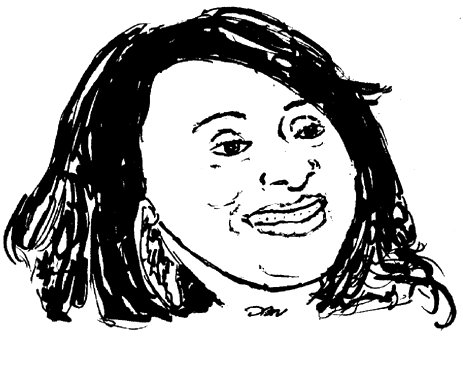
31. “I Left My Sidepiece”—C.C. Miles
32. “Love’s Like A Boomerang”—Sharnette Hyter
33. “In Those Jeans”—J. Fitz
34. “That’s My Boo (Remix)”—Luster Baker
35. “Let’s Ride”—Nadia Green
36. “Big Girls (Do What You Do)”—Tara Sabree
37. “I Didn’t Take Yo Man”—Lady Soul
38. “Treat You Right”—Adrian Bagher
39. “Get’cha Head Right”—Wendell B.
40. “Booty Roll”—Tucka
April 1, 2020
Daddy B. Nice Book Review
Denise LaSalle (w/ David Whiteis): The New Posthumous Autobiography!

Reading Always the Queen The Denise LaSalle Story is like eating candy. LaSalle’s journey from growing up in Jim Crow-era Belzoni, Mississippi to early-seventies Gold Record recording artist (for “Trapped By A Thing Called Love”) to, a generation later, reigning queen of 21st-Century southern-soul divas is told in the vernacular, as direct and zesty as one of LaSalle’s sexually-explicit, chitlin’-circuit anthems. As such, it also marks a high point in the publishing career of David Whiteis, who forgoes the weighty analysis of his last book, the genre-defining Southern Soul Blues, to bury himself (and most of the critical kudos) in LaSalle’s riveting, street-wise, tell-all voice.
LaSalle was no china doll. When Billy Emerson, her first man-slash-manager on the Chicago R&B circuit in the early sixties, beat her up badly near the end of their relationship, LaSalle kicked him out. When he returned to get his belongings, Emerson had a friend bang on Denise’s locked storm door. When she answered, she saw Billy and told him to wait.
“By then I had bought a pistol from a lady across the street. I went back in and grabbed that pistol. When I got back to the door, he saw it, turned around, started running. So I opened the door and shot up in the air–POW! POW!–behind him. He was gone. And he never did get his stuff back.”
Later, in Memphis, she hooked up with a high-roller named Nate Johnson who had a habit of leaving for Atlanta or other cities for a few days at a time and returning with what he said were gambling earnings. He turned out to be a bank-robber and achieved even greater notoriety for a time as the alleged killer of famed Stax and Hi musician Al Jackson.
“Yeah, it was kind of dangerous, Denise remarks, but I didn’t care. You have to remember. I was still pretty young, and Nate was coming in with two and three thousand dollars stuck up in the glove compartment of his car, giving me half of it.”
Indeed, what comes through most vividly in LaSalle’s accounts of musicians and night life in Chicago, Memphis, Detroit and other cities is how these entertainers–both those who had “made it” and those who had not–lived like sly aristocrats amidst racism, poverty and violence. No one needed to reinforce their sense of worth in spite of the barriers put up by the society surrounding them. They had moxie in spades, and Denise as much or more than anyone.

Chicago in particular was a teeming hotbed of talent and showmanship, and LaSalle’s journey took her everywhere, touching virtually everyone who would become legendary either nationally or on what would become the contemporary southern soul circuit: Bobby Rush, Tyrone (“The Wonder Boy” in those days) Davis, Johnnie Taylor, Cicero Blake, Gene (“Duke of Earl”) Chandler, McKinley (“The End Of The Rainbow”) Mitchell, Dee (“Raindrops”) Clark, Lonnie Brooks, Major (“Um, Um, Um, Um, Um”) Lance, writer Floyd Hamberlin, Etta James, Koko Taylor, Syl (“Is It Because I’m Black?”) Johnson and his brother Jimmie Johnson, Otis Rush, Joe Simon, even the pre-teen, pre-famous Michael Jackson.
In fact, one of the most charming and affecting motifs of the autobiography is Denise’s frank and feminine takes on the sexual appeal of the many artists she worked with.
“Part of McKinley’s (Mitchell’s) appeal to me was that he was pretty. I’m just being honest and saying the truth!…Oooh. When he was young? That was a pretty boy. But then as he got older, he got fatter and didn’t look as good anymore. But he was pretty ’til then. And Dee Clark? Oooh, yeah. He was cute, too.”
Later in the book, she says about Latimore:
“I love him from the bottom of my heart, and in fact, I’ll admit it: I probably liked him enough to break my rule about not having an affair or anything like that with an entertainer. Oooh, I lusted after that man. But never would I go that route with him, and what I like bout Lat is that Lat’s so cool. Throw hints, throw hints, but we’d laugh them off.”
As LaSalle matured she returned to the South, recording in Memphis, Jackson and even Muscle Shoals over a remarkable run of decades, along the way mingling with an even wider array of musical celebrities: Bobby “Blue” Bland, Z.Z. Hill, Don Bryant, Ann Peebles, Shirley Brown, Millie Jackson, Little Milton, Bill Coday, not to mention writer/producers Harrison Calloway, Frederick Knight and George Jackson. Contemporary Southern Soul fans and readers will want to skip ahead to the contemporary era for Denise’s backstage gossip on all of them–including Sir Charles Jones–then double back (as I did), to read the whole book. LaSalle is refreshingly frank but never mean-spirited, and what shines through reads like the truth.
About Z.Z. Hill, she notes:
“Z.Z., by the way, also became a good friend of mine. One of the nicest guys you’d ever want to meet. Good performer too. But he was strange. He didn’t clown like the other guys on stage. He’d walk up there, get the microphone, just stand there and rock back and forth, just rockin’ in rhythm. Some people used to kind of laugh at him, but it wasn’t a laughing matter. He was just a little different, that’s all it was.”
And about Bobby Rush:
“Bobby Rush takes gigs where nobody else could go…Not many of us can do equally well with the black and white audiences, but Bobby can do it, and I think it’s great.”
Along the way we find out that LaSalle signed with Malaco Records right after Z.Z. Hill in the mid-eighties and brought Johnnie Taylor to the label. We get the real story behind LaSalle’s surprisingly fortuitous recording of the zydeco novelty hit “My Toot Toot,” arguably her most popular legacy-tune. Throughout, LaSalle shines the same incandescent lamp of “no bullshit” upon herself that she directs toward others.
In describing how she constructed her stage act (“I’d go into a little spoken-word thing mixed up with the verses…then I’d be sashaying around, playing with all the guys, sitting on their laps”) in her early years in Chicago, Denise gives this no-nonsense comparison to Aretha Franklin:
“Aretha could take a phrase and build these incredible vocal ad libs around it. But every time I’d try to sing with the power she had when she sang, I fell flat on my face… I couldn’t sing it like she could, so I just dropped down to saying it. It wasn’t written down; it was just coming off my head, and I got to be really good at that… When I found out it worked, I kept it in my act. Same thing with my monologues on my records later on.”
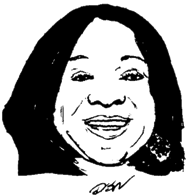
When, in the course of my southern travels in the late nineties, I first stumbled upon what was to your Daddy B. Nice a new and better kind of black music, there were three divas ruling the then murky and mysterious (pre-Internet-presence) chitlin’ circuit: Peggy Scott-Adams, Shirley Brown and Denise LaSalle. (With honorable mention to Barbara Carr, Lynn White and Keisa Brown.) And the underground “southern soul” scene–a tentative term at the time–was so chaotic, dispersed and disjointed that even these three divas didn’t really understand what was going on. (See Daddy B. Nice’s interview with Peggy Scott-Adams.)
Peggy Scott-Adams was the artist who absolutely slayed me–the woman who more than any other made me forage for more, more and more southern soul. At one time I had her ranked even above Johnnie Taylor on the first Top 100 Southern Soul chart. But this was because she had a southern-soul genius and genre pioneer, the late Jimmy Lewis backing her, writing and producing her material, as Peggy is the first to admit.
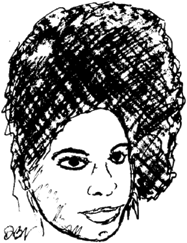
Shirley Brown was second in the hierarchy. Like Denise (and to a lesser extent, Peggy), she had scored a gold record in her youth (“Woman To Woman”), and of the three Shirley was the most gifted, boasting a phenomenal set of pipes and incredible range and clarity. And yet, of the three musical “mothers” of the modern genre, Denise LaSalle was the most durable and accessible, playing the consistent and long-lived Rolling Stones to the Beatles-like brilliance and flame-out of Scott-Adams and Brown. (And, ironically, she is the only one of the trio who has passed.)
LaSalle was around, year after year, gigging and recording, meeting and greeting, mingling and singing with new and unfamiliar entertainers. Sheba Potts-Wright began her career as Denise’s back-up singer, as did Karen Wolfe. Denise accepted invitations to perform or record with artists in what she called the “modern” southern soul style, even those as exotic and seemingly ill-fitted as the techno-funky Bigg Robb.

Listen to Bigg Robb and Denise LaSalle singing “Blues And BBQ” on YouTube.
The collaboration became successful beyond expectations (2 million-plus YouTube views) chiefly because of the two singers’ mutual voice-over skills, Bigg Robb being a master of the audience-loving “ad lib” LaSalle explains with such loving detail in this autobiography.
Clashing styles and labels are a recurring motif in LaSalle’s long career. Classified by the industry as “R&B” in her younger years, she was encouraged to record as a “blues” singer in her later years. LaSalle alternately rebelled and compromised, and knowledgeable southern soul readers will delight in her thoughts on the “blues,” specifically the chasm between what “white folks” call the blues and “black folks” call the blues.
“I never will forget. Wolfe (her husband and manager) brought a show to Jackson one time; I think it was at the Fairgrounds. And I guess he was trying to attract a white audience, because he brought in this old guy from Leland, Mississippi, playing some “Dump-da-dump-da-dump” shit on an old guitar. Boy, I stood out there and listened to him. I wouldn’t have paid him fifty dollars to do a show for me. But those white folks were out there fallin’ out, jumpin’, and jammin’, just going crazy over him, while all of us black folk were standing around saying, “What the hell is this?””
“It kind of stunned me, how that could be. But that’s the way it was. I always felt like a lot of white folks still love to see us lookin’ like country slave niggers, anyway. We came here as slaves, and “slave” was where they wanted to keep us, okay?””
And LaSalle continues:

“Even Bobby Rush. He’ll go and sit down with them white folks, playing solo guitar, wearing some overalls and a hat. How much money you think Bobby could make sitting in a club, playing that guitar and that harmonica, for black folk? Black folk want musicians! They don’t want no one-man band. They’d walk out on his ass in a minute!”
And…
“Bobby’s show when he plays for a black audience is not the same as when he plays some of those sit-down gigs for the white folks. Honey, Bobby’s raunchy when he’s with us! Bobby be turnin’ it out with them nasty girls up there. They’ll be up there dancing, all the men looking real hard at ’em, and Bobby just say, ‘You can look, but you can’t have nothin’ up here on this stage! Your eyes may shine, your teeth may grit, but ain’t shit up here you gon’ git!'”
And there you have the difference between what white folks call the blues and black folk call the blues.
“Now Bobby knows what he’s doing. He’s keeping his gig, and no matter how he does it, it’s always the real Bobby Rush, just a different side of him. He won’t bow, and he won’t shuffle. And there’s nothing wrong with that, either. I don’t mind it. I don’t mind it because when he does that, we’re singing two different kinds of blues. I do not sing Muddy Waters-style blues. I do not sing Koko-style blues.”
LaSalle sums up her life with similar mettle, humor and candor. After noting a couple of things she might have changed, she says:
“But I like who I am, and I like the way I am. I’m a rounded performer, whereas a lot of other people aren’t. You talk about songwriter, artist, producer, manager–I’m all of those things…I’ve done it all.”
“And also, people might find this hard to believe, but I never really cared about becoming a superstar, making it that big. I’m happy doing the work. I like what I do. I’ve enjoyed it.”
–Daddy B. Nice
Buy Always the Queen
The Denise LaSalle Story.
